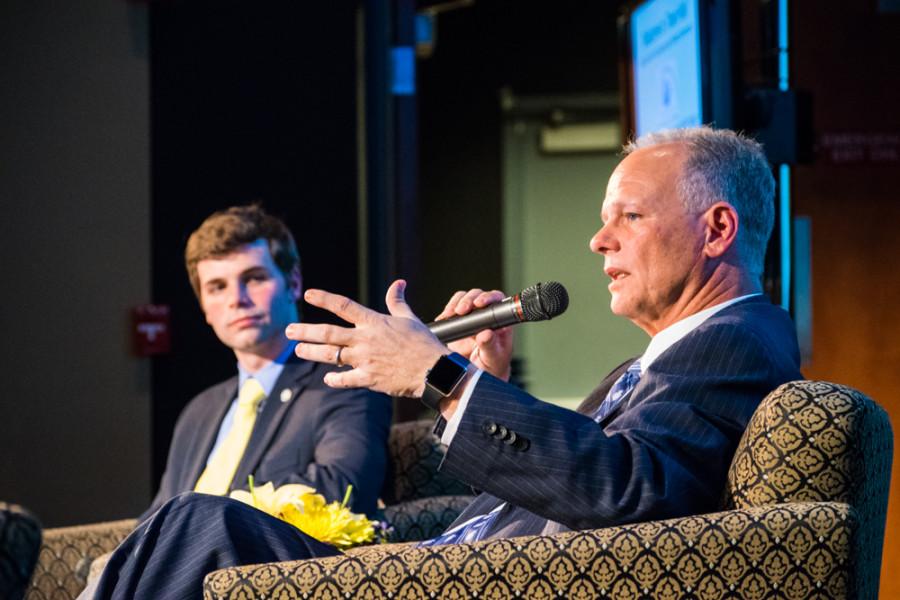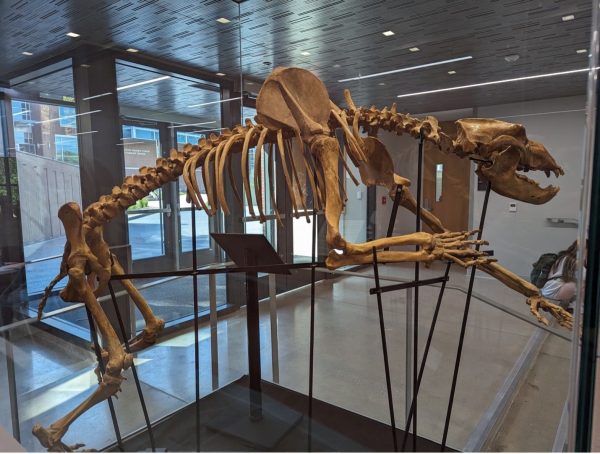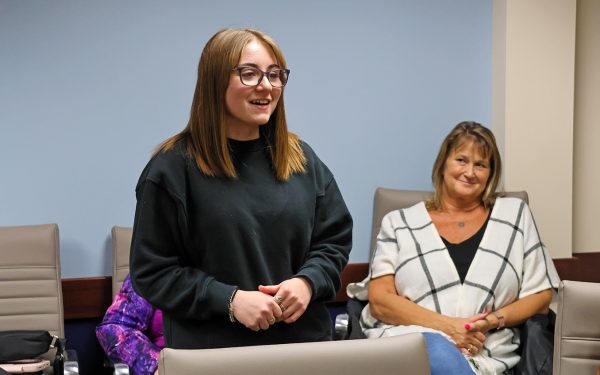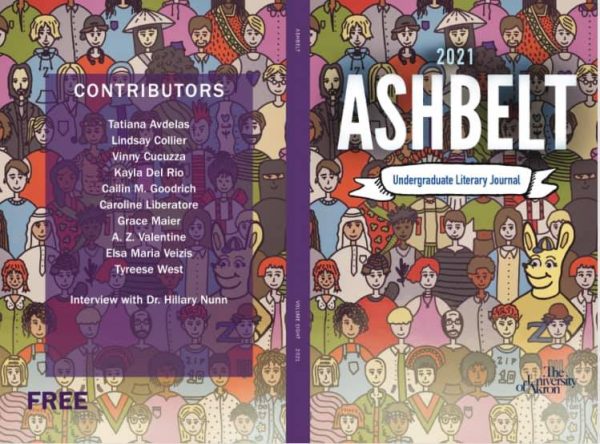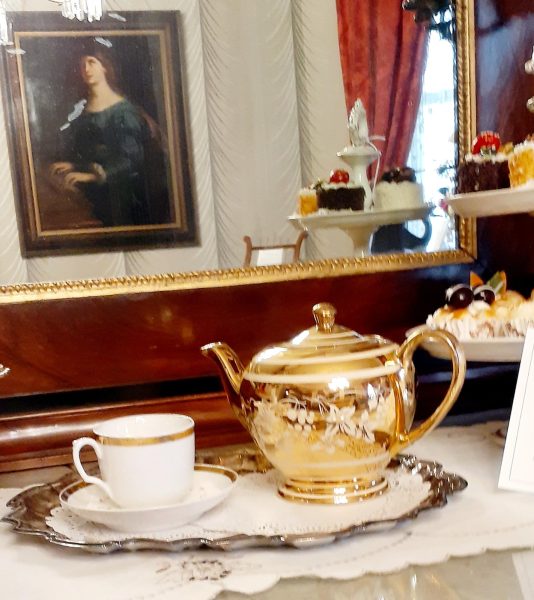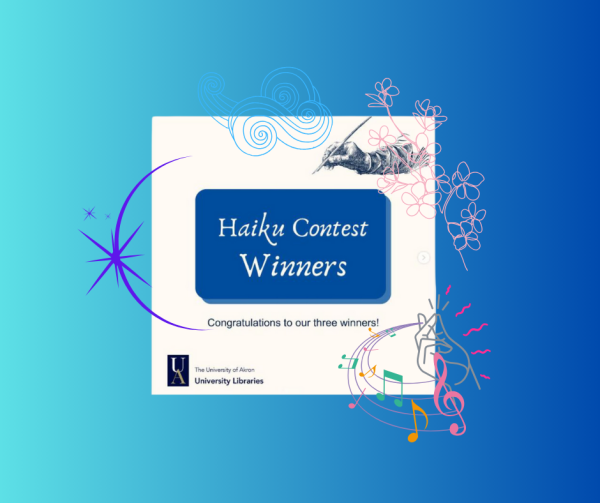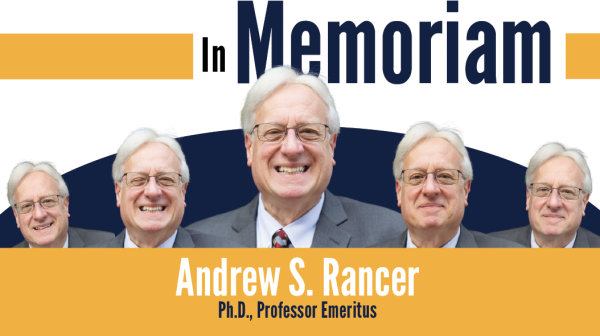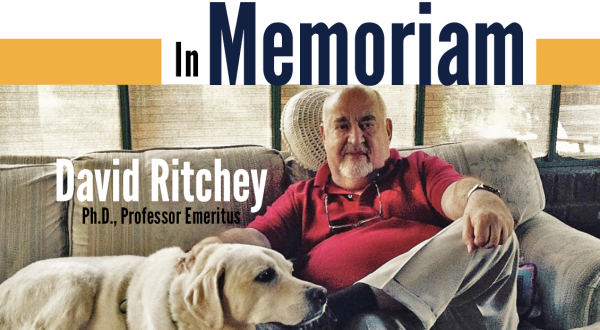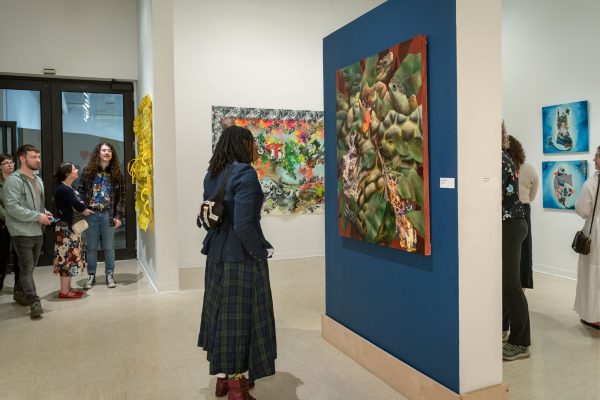Scarborough responds
Questions answered, left unanswered at USG Town Hall meeting.
“Why is this a Town Hall meeting but there is not a direct dialogue between us and the president?” shouted an audience member at the beginning of yesterday’s forum featuring UA President Scott Scarborough. “This whole texting thing really takes away from having a personal interaction with [him].”
What do you have to say about the recent Town Hall meeting featuring UA President Scott Scarborough? (Choose more than one, if necessary)
- USG asked bad questions. (29%, 130 Votes)
- USG asked great questions. (17%, 75 Votes)
- All his answers were just prefabricated doublespeak. (16%, 70 Votes)
- The event was a great idea, but the whole texting questions thing was a big downside. (11%, 50 Votes)
- Scarborough should do another event like this soon. (9%, 41 Votes)
- My question wasn't even asked! (8%, 38 Votes)
- It's reassuring that he agreed to do this event, but he could've answered the questions better. (7%, 31 Votes)
- I'm satisfied. He really clarified the issues surrounding recent news and connected with the students. (3%, 15 Votes)
Total Voters: 284
This comment, made by UA graduate student Thomas Guarino, captured both the benefits and drawbacks of the most recent Town Hall meeting hosted by the Undergraduate Student Government, a monthly event aimed to increase transparency between students and administrators.
At 3 p.m. in the Union theater, USG President Taylor Swift and Chief Justice Garrett Scherba sat down with Scarborough to answer as many students’ questions as their two-hour timeframe allowed. The only stipulation was that all questions had to be sent to a number designated by USG, to then be filtered and prepared by USG members backstage before reaching Scarborough.
About 140 students attended, but the majority left halfway through. Isaac Lampner, USG senate’s facilities and services chair, said more than 100 questions were sent during the event.
However, many questions were not new to Scarborough.
Last week, USG President Swift sent a list of questions to Scarborough to help him prepare for the forum, according to Chief Justice Scherba. These questions were formulated by USG’s judicial branch.
“He did have a little bit of time to prepare,” Scherba said. “They gave him an idea of what he should know to get a general feel for the forum.”
Scherba said the only question he recognized as one from the list sent a week ago was the very first one: What brought you to The University of Akron? Other than that, Scherba says, all the questions were from students’ texts; however, each question did go through a variety of filters before being asked, which led to many edits and revisions.
The reason for this method of asking questions was ensure the dialogue did not get out of hand or overly impertinent, according to various USG members. But some students, including Guarino, were not happy about it.
“I did not like it at all,” sophomore Olivia Biss said, adding that it did not seem like an open dialogue. “It took away from the personal thing and became more of a sit-down-and-watch interview.”
Her question, concerning how Scarborough would regain student trust after recent events, was not addressed.
Regardless of how and by whom the questions were created, Scarborough responded.
Concerning a question about the notorious $556 olive jar, Scarborough claimed he discovered the cost of the jar when he was reading a newspaper article one morning. After giving detailed descriptions of both the jar’s dimensions and its contents, he attributed its purchase to the interior designer who did his home’s renovations.
Scarborough also addressed a question concerning proposals to start a private K-12 school on campus.
The plan,“proposed and vetted” for the LeBron James Family Foundation College of Education, would establish a laboratory school to train future teachers. The University is still seeking a partner for this project, with Scarborough adding that “none of the things [the administration has] looked at so far have panned out.”
Both Scarborough and Swift weighed in on a question of administrative transparency—or lack thereof. Scarborough said he hopes to devote 50 percent of his time next year to communication with UA’s constituent groups, along with emphasizing social media and contact with USG.
Swift responded by noting the importance of being proactive, saying he thinks there needs to be an improvement in the administration’s communications with students.
“As much as we, [USG], can do as an organization, our voice can only go so far,” Swift said to Scarborough. “There has to be a little more push [from upper level administrators].”
In response to concerns over plans to create a “grand entrance” off Exchange Street, Scarborough said it was something he took note of while on his first tour of campus, when he began to think it was “hard to understand where the front door of this institution is.”
Scarborough cited a public records request taken out of context as the culprit for concern.
If such an entrance were to be built, Scarborough added, it would be a part of the University’s “campus master plan”—a five-year plan to “conceptualize” campus property renovations.
“The reality is that we haven’t even begun the process [to determine] what will be in the master plan,” Scarborough said.
However, detailed artist renderings of a “grand entrance” were included in the public records request Scarborough mentioned. This, along with the cutting of the baseball team, raises concern about plans for a grand entrance that are far more developed than Scarborough purports.
Addressing campus housing, Scarborough said that on-campus housing is “at full capacity.” If class size continues to increase, he added, the University could look into adding additional housing. As an example, Scarborough spoke of developing the fraternity and sorority area of campus into a “greek village.”
“[Scarborough] did not seem to answer [the questions] very directly or sincerely,” Olivia Biss said after the forum. “He seemed pretty uncertain about it.”
Senior communications major Linley Hipp thought otherwise.
“I felt that he did a good job trying to make sure that he was understood,” Hipp said. “Even though people were getting upset at various points, I feel that he handled himself pretty well and answered questions appropriately.”
Hipp was not bothered that students had to send in questions over text.
Isaac Lampner, mentioned previously in this article, said he was disappointed in what he thought was a low turnout for the event, and by how most of the students had left by the time it was over.
Vice President for Advancement Larry Burns and Athletic Director Larry Williams will be featured in the next Town Hall meeting on Nov. 16.
Chief Justice Scherba said the questions that were sent in but not posited will be answered by Scarborough, with his responses to be published and distributed by USG in a few weeks. The answers will be available on USG’s website, http://t.co/a3QG25ILql
Your donation will support the student journalists of The University of Akron. Your contribution will allow us to keep printing our magazine edition, purchase equipment and cover our annual website hosting costs.

